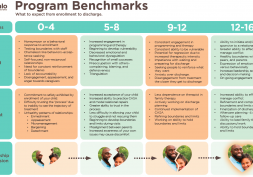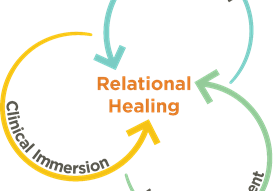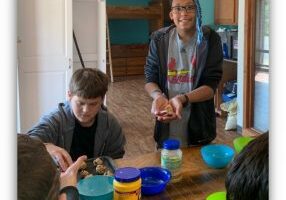“Since Calo is not a Level System/Phase System, or Token Economy, how do we know if progress is occurring and how long the child will be in treatment?”
This is a common question. Since Calo commits to a relational therapeutic model based on Dyadic Developmental Psychotherapy, progress is based on emotional, relational, and therapeutic gains rather than behavioral gains. Although behaviors are an indicator of growth, it is but one variable to the big picture. Calo does not subscribe to a predetermined or set date of departure. Each student is individual, has individual needs and will respond to treatment as an individual. However, the AVERAGE length of stay is about 12-15 months. A family’s progress is gauged by the entire treatment team, consisting of the primary Therapist, Academic Department, Health Services Department to include Calo’s Psychiatrist, Animal Assisted Therapy Department, Residential Department, and Adventure Therapy or Occupational Therapy Department. Not to mention the two most crucial members of the treatment team: the student and the parent(s)/caregiver(s).
Calo’s treatment team consistently reviews each student’s progress to move toward the goal of transitioning back home. The length of stay varies based on a number of factors and is individualized for each student. Some factors influencing the length of stay are:
1) Relative Complexity: The relative complexity of the psychosocial and educational history of the student prior to enrollment often has a large impact on a student’s length of stay; typically, the more complex the history of the student the longer the length of stay.
2) Onset of Problems: How long has the student been struggling? Is this a new problem or has the student been struggling for a significant amount of time? Normally the longer the student has been entrenched in the behavior and emotional turmoil, the longer the length of stay.
3) Family Involvement: our families are a key part of our therapeutic process. Your commitment and acceptance of your child as well as your participation within the milieu, family therapy, parent retreats/seminars and regular visits support your child’s growth and healing. When family involvement is limited a child’s progress might stall or the student may progress at a slower rate.
Ultimately, we are seeking the family’s ability to initiate and/or be responsive to a relational repair, have greater ability to effectively manage conflict, maintain healthy boundaries (both parents and student), ability to express emotions verbally versus behaviorally, and have an increase in leadership, accountability, and decision making.







